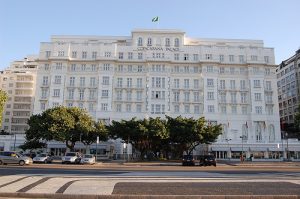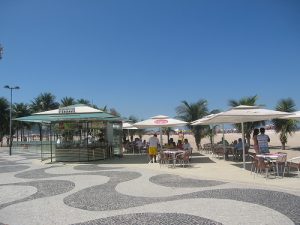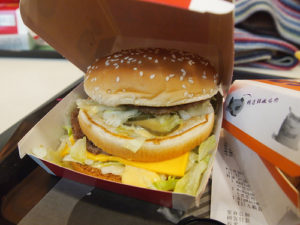Copacabana: Getting a Facelift
By Sarah de Sainte Croix, Contributing Reporter
RIO DE JANEIRO, BRAZIL – Copacabana, perhaps the most famous of all of Rio’s beach-side neighborhoods, needs little introduction, but since its hey-day in the 1930s the glamor has been gradually giving way to a grittier reality, and the glitterati have moved on down the beach to Ipanema. However, the neighborhood is undergoing a quiet metamorphosis in anticipation of the Olympic Games in 2016 that is slowly putting the shine back.

The Copacabana Palace Hotel - the symbol of the neighborhood's illustrious past, photo by Yusuke Kawasaki/Flickr Creative Commons License.
One of the most significant changes the neighborhood has witnessed in recent years is the pacification of its surrounding favelas. In 2009 the favelas Babilônia and Chapéu Mangueira overlooking Copacabana’s eastern-most tip, and Pavão-Pavãozinho and Cantagalo at the south-western end were amongst the first favelas to be occupied by theUPP (Police Pacification Force) in the city’s Zona Sul (South Zone), significantly improving the safety and security in the area.
Copacabana resident Priscila Paiva commented, “I used to see a lot more crimes going on in the street, like people buying and selling drugs in broad daylight. I’m sure it’s still going on to some extent, but it seems a lot less obvious now.”
The second major change for Copacabana was the inauguration in February this year of “BRS Copacabana” (Bus Rapid System) – a new system of bus lanes on Copacabana’s main arterial roads, Avenida Nossa Senhora de Copacabana going north, and Ruas Barata Ribeiro and Raul Pompeia going south.
Paiva says, “The traffic in Copacabana was notorious. My commute to work has definitely improved. It can still be chaotic and the bus drivers still drive far too quickly, but it’s a step in the right direction.”
The beach is also receiving a major facelift courtesy of Orla Rio’s project to renovate Copacabana’s beach-side kiosks. The new kiosks are made from stainless steel and glass allowing a view through from all angles, and they feature subterranean kitchens and public bathrooms.

One of Copacabana's renovated beach-side kiosks, photo by Skellig2008/Flickr Creative Commons License.
But while all the signs point towards a shiny new future for Copacabana, David Eger from Rio Apartment Rental urges an honest caution to those thinking of investing in property in the neighborhood. “I’d wait to see what happens in the next year, due to the huge increases in real estate values experienced in the past couple years. The bubble might burst. Of course if you find a great deal, go for it, but, buyer beware here….no mortgage insurance.”
Indeed, rental prices have gone up by over 100 percent since The Rio Times’ last survey in April 2010. Then, a basic one-bedroom apartment started from around R$500 per month. Now the starting price is in the region of R$1,200 per month, not including condo fees and taxes.
Purchase prices have also demonstrated dramatic increases. One-bedroom apartments start at around R$200,000 for just 28 to 30 square meters, and a two-bedroom will set you back upwards of R$400,000 for 60 to 100 square meters – an increase of over R$100,000 on last year’s figures.
However, Eger goes on to say, “The population of Copacabana is aging…this may prevail as an opportunity for more affluent and worldly people to purchase, remodel and rebuild this world-famous, beautiful location.”







